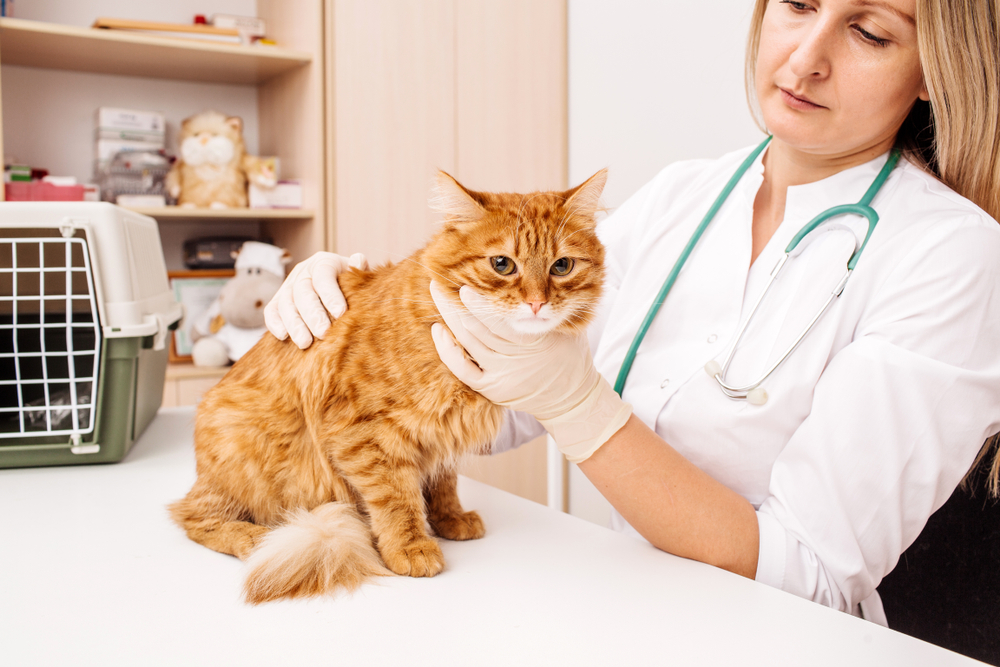An extra hand in the kitchen is always welcome when you are cooking dinner. But, if your pet is the “helper,” be vigilant when it’s time to taste test. Many foods in your kitchen or pantry can be dangerous to pets if ingested, and nothing will spoil a meal faster than having to dash out to the emergency clinic because your pet ate something toxic.
If you think chocolate is the only treat deadly for pets, you’ll be surprised to learn that there is a long list of toxic foods. Here are some common foods that can turn your night into a kitchen nightmare.
Chocolate and caffeine
The above-mentioned chocolate contains caffeine and theobromine, two chemicals called methylxanthines that are toxic to dogs and cause neurologic signs in high enough doses. The darker the chocolate, the more the concern—good news if you love milk chocolate, because your dog needs to eat a lot to approach a toxic dose. Chocolate ingestion usually causes a mild gastric upset with vomiting or diarrhea. However, if dark chocolate is your weakness, your dog may be in trouble.
If your dog has consumed any amount of chocolate, give us a call or send us a text so we can let you know how high the danger.
Grapes and raisins
Grapes and raisins are more dangerous for dogs than chocolate, because ingesting only a small amount of these tasty fruits can cause kidney failure that can lead to death. Only 0.3 ounces of grapes has been reported to cause kidney failure in a dog.
The reason why grapes and raisins are toxic is not known. More puzzling is that some dogs can eat grapes with no problems, while others die from eating only a few. If your dog has eaten any amount of grapes or raisins, we recommend he be hospitalized while we monitor his kidney function.
Onions and garlic
These allium vegetables, including their powdered forms, damage the red blood cells of dogs and cats when ingested. If too many red blood cells are damaged, life-threatening anemia can result. Onions and garlic are particularly toxic to cats.
Avocados
Avocados contain a chemical called persin that, fortunately, does not affect dogs and cats. However, avocados can be risky for dogs, who may easily swallow the creamy fruit as well as the pit, which can obstruct the intestines. Foreign-body obstructions are life-threatening, and surgery is often required to remove the blockage.
If you share your home with birds, such as canaries, parakeets, cockatiels, or large parrots, or you share your yard with cows, goats, or sheep, persin may be a problem. Avocado-poisoning signs in birds include inability to perch, difficulty breathing, and sudden death. Large animals who eat avocados may suffer from swelling of the mouth and throat and heart damage that can lead to death.
Macadamia nuts
Macadamia nuts harm dogs because:
- Their high-fat content can cause pancreatic inflammation.
- Low doses—as little as half a nut per pound of dog—can cause neurologic signs like weakness, difficulty walking, and tremors within 12 hours.
Xylitol
This artificial sweetener, fast gaining in popularity, can be found in sugar-free gum, candies, and snacks, including sugar-free peanut butter. In dogs, xylitol may cause dangerously low blood sugar and can also harm their liver. Some dogs will fully recover, while others may develop fatal, acute liver failure.
Bread dough
If you’re perfecting your artisan-bread making, ensure you leave the rising dough out of your dog’s reach. If he decides he can’t wait until the bread is baked, the dough will continue to rise in his warm stomach and cause not only significant abdominal pain and bloating, but also alcohol poisoning from the ethanol that dough produces.
Raw or undercooked meat, eggs, and bones
Raw meat and eggs can contain bacteria such as Salmonella and E. coli, which can wreak havoc on your pet’s gastrointestinal system. Also, while raw bones may seem like natural, healthy dog treats, they can be dangerous for pets, who may choke on the pieces of bone, or be gravely injured if a bone splinter punctures the stomach or intestines.
Foods that become foreign bodies

Some foods are dangerous, not because of their toxic potential, but due to their size and digestibility, or lack thereof, such as avocado pits. Other examples include peach pits and corn cobs, which can become lodged in your pet’s intestines and cause an obstruction.
We all enjoy a good meal, and, of course, your pet will always want to taste your cooking, but if your pet may have been exposed to any food toxin, call us right away. The earlier we start treatment, the better the outcome.
